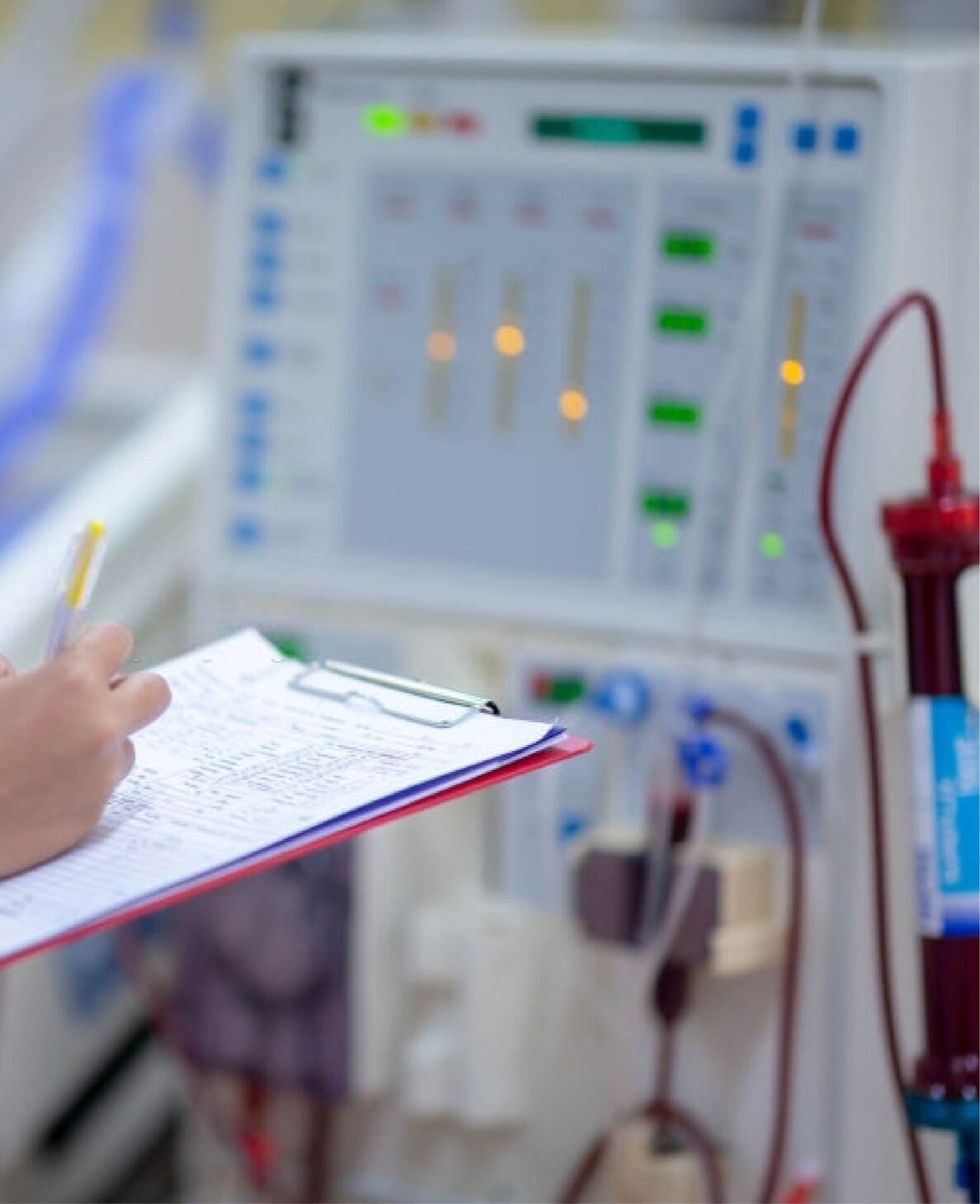Dialysis
We are here for your care.
The kidney of a health person filters 120 to 150 quarts of blood every day. When the kidneys do not work as expected, it might lead to an accumulation of waste in the blood. Over time, it may result into coma and death. The reasons behind kidneys not working properly might be a chronic, or acute condition that causes damage to the kidneys.
People who have a damaged or failed kidney may have problems in eliminating waste and water from the blood. Dialysis is a procedure to do that artificially. It is also known as renal replacement therapy (RRT). Persons who have lost about 85 to 90 percent of their kidney are candidates for undergoing dialysis.

There are three different types of dialysis. They are as follows:
- • Intermittent hemodialysis (IHD): The blood comes out of the patient through a tube called catheter that is flexible in nature. This tube is put into the vein. The blood circulates outside the body and passes through a machine that has specialized filters. The filter removes the waste from the blood. The filtered blood comes back to the patient’s body through another catheter. It is performed three times a week, for 3 to 4 hours a day. It is suitable for persons who are in a stable state when they’re undergoing dialysis, do not possess conditions that would make hemodialysis not safe to perform, have enlarged blood vessels to insert the catheters and have a person who is willing to act as a caregiver and help with hemodialysis.
- • Peritoneal dialysis (PD): A sterile dialysate solution that has lots of minerals and glucose, is passed through a tube into the peritoneal cavity which has a semi-permeable membrane called the peritoneal membrane. Utilizing the natural filtering ability of the peritoneum, waste products are filtered from the blood. To absorb the waste, the dialysate is kept in the peritoneal cavity for a while. After that, it is drained out by using a tube and discarded. It takes longer and removes the same amount of waste, salt, and water as hemodialysis.
- • Continuous renal replacement therapies (CRRT): Dialysis can be either continuous or intermittent. CRRT takes 24 hours in an intensive care unit (ICU). CRRT can be of different types. It can be done through filtration or diffusion. Its tolerance is much better than intermittent dialysis as the removal of the solute or fluid is slower. It results in less complications, for instance, less risk of hypotension.

Prasad Hospital is a multi-speciality hospital located in Brahmpura, Muzaffarpur. Backed by a team of experienced doctors, Prasad Hospital is known for its dedication to provide affordable healthcare.
Address
Prasad Hospital, Brahmpura, Muzaffarpur, Bihar-842003
prasadhospitalmuzaffarpur@gmail.com
Phone
9570996625 / 9570996640
